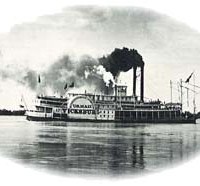The Wall Street Journal has a piece on the spending habits of economists. It appears that those trained to see the world in economic terms, see the world in economic terms.
In recent research, University of Washington economists Yoram Bauman and Elaina Rose found that economics majors were less likely to donate money to charity than students who majored in other fields. After majors in other fields took an introductory economics course, their propensity to give also fell.
“The economics students seem to be born guilty, and the other students seem to lose their innocence when they take an economics class,” says Mr. Bauman, who has a stand-up comedy act he’ll be doing at the economists’ Atlanta conference Sunday night. Among his one-liners: “You might be an economist if you refuse to sell your children because they might be worth more later.”
Turns out economists both study the “free-rider” problem and tend to be free-riders.
Economists long have studied “free riders,” the sort of people who take more than their fair share of something when circumstances permit. Think of the person who orders the most expensive entr[eacute]e at a restaurant, knowing that the check will be shared equally among companions.
University of Wisconsin sociologists Gerald Marwell and Ruth Ames, in a 1981 paper, found that in experiments, economics students showed a much higher propensity to free ride than other students. In questioning after the experiment, the sociologists found that for many of the economics students, the concept of investing fairly “was somewhat alien.”
Cornell University economist Robert Frank, working with a pair of psychologists, mailed questionnaires to college professors asking them to report the annual amount they gave to charity. Their 1993 paper reported that 9.1% of the economists gave no money at all — more than twice as many holdouts as in any other field.
Economist like E.F. Schumacher (Small is Beautiful) and more recently Stephen A. Marglin (The Dismal Science) have offered critiques of their disciplines from the inside. We can only hope that one day Schumacher’s subtitle will be realized: Economics as if People Mattered.
H/T Glenn Moots






2 comments
Brendan McHugh
Perhaps they’ve studied Ayn Rand?
John Médaille
I’ve read somewhere–I can’t find the paper right now–that in “lost wallet” experiments conducted on college campuses, most students will return the wallet, complete with the cash. Except for economics students, who are inclined to keep the cash and throw away the wallet.
Comments are closed.